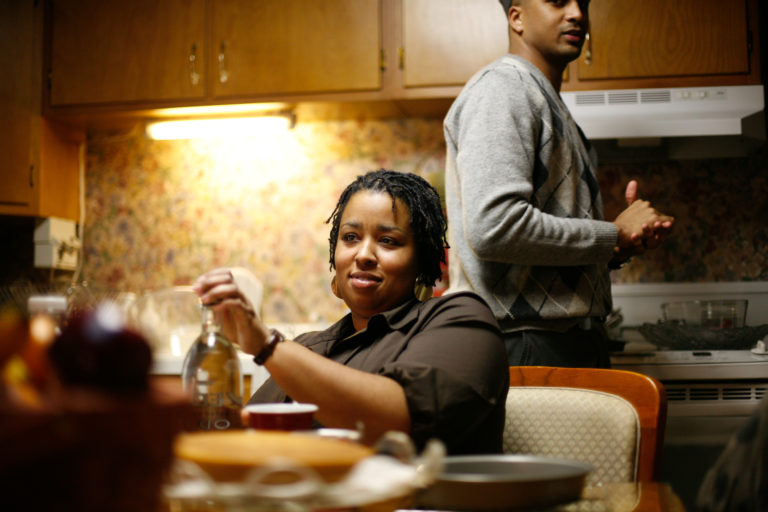When Words Become Flesh: Risking Vulnerability in a Violent World
“And the Word became flesh and dwelt among us…full of grace and truth.” — John 1:14
As a kid growing up in the Methodist Church, the Christmas Eve service always made me teary. Everything about it moved me: the story, the music, the candlelight, the scent of pine, the silent night, the comforting presence of family and friends. I was especially moved by the curious claim that “the Word became flesh and dwelt among us.”
I was blessed, as all children are, with what Buddhists call “beginner’s mind,” so the theological distinction between “the Word” and “a word” escaped me. Free of creedal complexities, I was mesmerized by the notion that something as airy as a word could take on human flesh. I was too young to understand why this moved me so, but today I do.
There’s often a huge disconnect between the good words we speak and those we incarnate in our lives. In personal relations and politics, in the mass media, in the academy, and in organized religion, our good words tend to float away even as they leave our lips, ascending to an altitude where they neither reflect nor connect with our lived experience.
We long for words like love, truth, and justice to become flesh and dwell among us. But in our violent world, where hate speech generates rabid support for certain wannabe “leaders,” it can be risky to infuse our frail flesh with the language of heart and soul.
In the Christmas story, God — an airy word if ever there was one! — takes the risk of incarnation. In fact, God doubles down on that risk by choosing the flesh of a vulnerable infant, not a warrior king, a claim that brought me to tears of wonder when I was young. But my adult knowledge of that infant’s fate — a fate shared by so many who have devoted their lives to love, truth, and justice — brings tears of grief and anger, along with a primal fear of what might happen if I followed suit.
As a Quaker who believes that “there is that of God in everyone,” I know I’m called to share in the risk of incarnation. Amid the world’s dangers, I’m asked to embody my values and beliefs, my identity and integrity, asked to allow good words to take flesh in me. Constrained by fear, I often fall short. And yet I still aspire to walk my heart-and-soul talk, however imperfectly.
Christmas is a reminder that I’m invited to be born time and again in the shape of my God-given self — which means embracing the vulnerability of the Christmas story. It’s a story easily lost in a culture that commercializes this holy day nearly to death, or in churches more drawn to showtime and bling than to the real thing, or in creedal food fights over whose theology is best. But the story’s meaning is clear to beginner’s mind.
An infant in a manger is as vulnerable as human beings get, and what an infant needs is simple: food, shelter and protection from harm. The same is true of all the good words seeded in our souls that long to become embodied in our midst. If these vulnerable but powerful parts of ourselves are to be incarnated — to suffer yet survive and thrive, transforming us and the wounded world around us — they need to be swaddled in unconditional love.
For those of us who celebrate Christmas, the best gift we can share with others, whatever their faith or philosophy may be, are two simple questions asked with heartfelt intent: What good words within us are waiting to take on flesh? How can we love one another in ways that allow those words to be born and dwell embodied among us?

